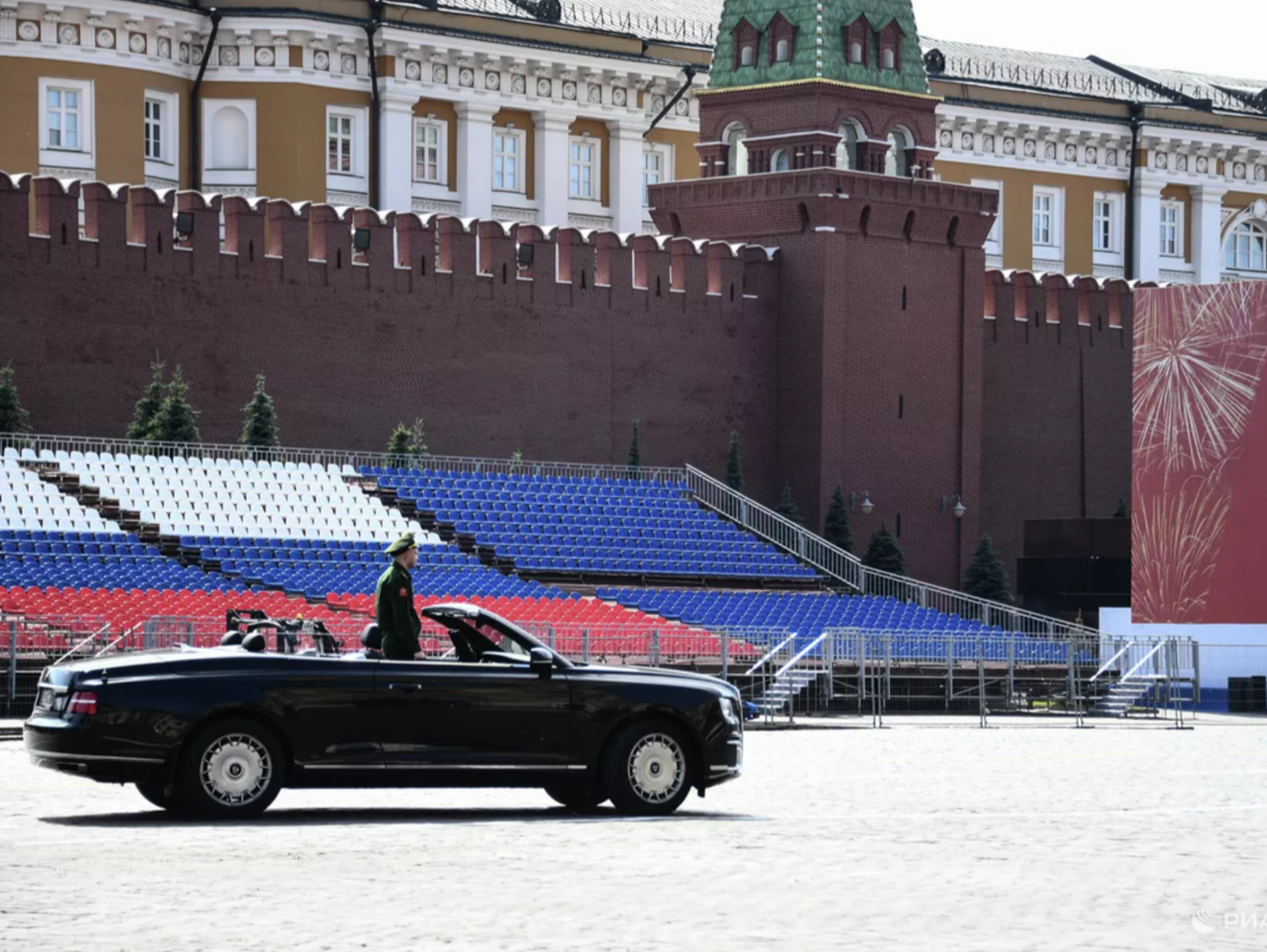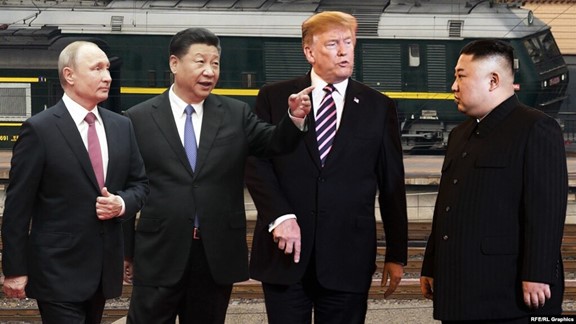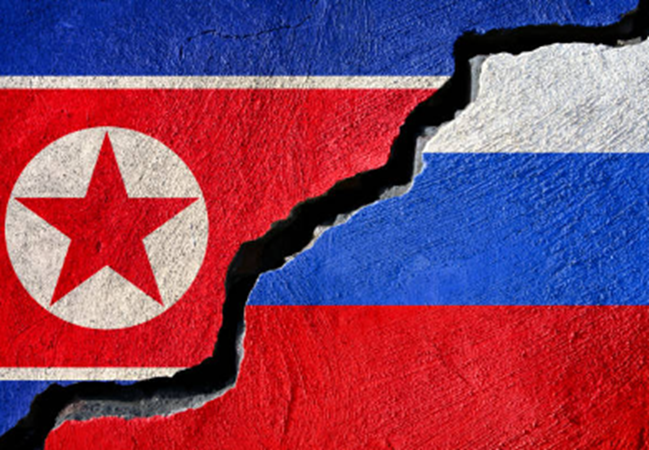The Poisoned Apple of War
In the cold halls of the Kremlin and on the bleak, wind-swept streets of Pyongyang, a secret is brewing—one no one dares speak aloud. Russia and North Korea, two pariahs of the global stage, have declared themselves allies, united in their fight against the West. Their leaders exchange smiles for the cameras, sign treaties with the pomp of eternal friendship, and vow to stand shoulder to shoulder against the “imperialist enemy.” But behind this theater lies a fragile deal soaked in distrust, opportunism, and cold calculation. This is not an alliance, but a house of cards ready to collapse at the slightest breeze. And in May 2025, during the grand Victory Day parade in Moscow, that house developed its first visible crack—exposing a truth that made the world hold its breath.
When Russia officially acknowledged that North Korean soldiers were marching under its banner in Ukraine, it was supposed to be a triumph—a symbol of the Kremlin’s unyielding power. Instead, the world saw desperation. The world’s second most powerful army, as Vladimir Putin proudly called it, was now humiliatingly reliant on the regime of Kim Jong Un—a state branded a pariah by the global community, with an economy choking under sanctions and a population living in perpetual fear. This was not just a diplomatic misstep—it was a blow to the heart of Putin’s myth of a great Russia, a nation that bows to no one. Instead of an image of indomitable strength, the world saw a “paper tiger” whose power melts away like snow under the spring sun.

For Russian citizens whose sons and brothers are dying on the front, the arrival of North Korean troops was a bitter revelation. If, as the Kremlin claims, victory is so close, why call on Pyongyang for help? That question echoes through homes and streets, eroding faith in Putin’s narrative of a “controlled war.” Citizens, worn down by loss and economic hardship, begin to whisper: is Russia truly so weak it needs foreign troops? Hope for triumph dissolves in the air, giving way to the grim realization that Russia, once a proud superpower, is now begging support from a pariah.
But for North Korea, this “alliance” is no less of a gamble. By sending its soldiers into the meat grinder of another’s war, Kim Jong Un becomes complicit in war crimes. His regime, already burdened by sanctions, now faces the threat of even greater isolation. The world will not forgive Pyongyang for violating UN resolutions, and Kim, like his Russian counterpart, may soon find his name on an arrest warrant from the International Criminal Court. This is a poisoned apple, infecting both sides and trapping them in a web of their own ambitions. Russia is losing the last of its global credibility, while North Korea—already teetering on the brink—steps closer to the abyss.
Feast During the Plague: A Parade Without an Ally
On May 9, 2025, Moscow donned its festive garb to celebrate the 80th anniversary of Victory. Red Square echoed with the march of soldiers, the sound of orchestras filled the cobblestones, and the stands gleamed with leaders from thirteen nations—from China to Belarus. It was a day when Russia wanted to shout to the world: “We are not alone! We are strong! We are surrounded by loyal friends!” Yet amid the splendor yawned a void, a black hole devouring the light of Putin’s ambitions. North Korea—the only country whose troops are actually bleeding for Russia’s interests in Ukraine—was absent. This was no accident. It was a cold, calculated snub that spoke louder than any speech.
Putin personally invited Kim Jong Un to Moscow, invoking brotherhood during his 2024 visit to Pyongyang. In March 2025, Security Council Secretary Sergei Shoigu visited North Korea with a renewed invitation, nearly begging Pyongyang to honor Russia with its presence. But Kim did not show. His proxy, Choe Ryong Hae, chairman of the Standing Committee of the Supreme People’s Assembly, abruptly canceled his trip at the last moment, leaving the Kremlin in awkward solitude. In a world where every gesture is steeped in symbolism, this refusal was a slap in the face. Russia, expecting a display of loyalty, received instead a silent challenge that echoed through world capitals.
Yet Pyongyang did not stop at silence. On May 8, the eve of the parade, North Korea launched a ballistic missile into the Sea of Japan. Instead of marveling at Moscow’s celebration, the world discussed Pyongyang’s defiance. This act wasn’t just a provocation toward the West—it was an insult to Moscow, undercutting its carefully crafted image of unity with a single strike. Pyongyang made its position clear: it would not play by the Kremlin’s rules. Its priorities were not Russian glory, but its own power game on the global stage. For Russia, whose Victory Day was to be a symbol of unbreakable might, this missile launch was a stab in the back—turning the Kremlin into a laughingstock.
Mercenary, Not Brother-in-Arms

Behind the facade of “strategic partnership” lies a bitter truth: North Korea is not Russia’s ally, but a mercenary willing to sell its support to the highest bidder. Diplomatic circles whisper that Pyongyang expected generous compensation—advanced military technology, economic concessions, and international protection. But the Kremlin, it seems, failed to deliver. Pyongyang’s disappointment manifested in public disdain: refusal to attend the parade, the missile launch that overshadowed Russia’s holiday, and cold silence where loyalty was anticipated. This wasn’t just a gesture—it was a signal: North Korea uses Russia, but doesn’t respect it.
Moreover, Pyongyang cannot afford to associate too closely with Moscow. China, North Korea’s primary benefactor, watches its vassal closely. Open displays of loyalty to Russia could provoke Beijing’s ire—a risk Kim Jong Un cannot take. Participating in the Victory Day parade or publicly aligning with Moscow might have been seen as betrayal of Chinese interests. So Pyongyang chose caution, distancing itself at the moment the Kremlin needed support most. But that’s not the full story. The missile launch on May 8 was also a message to the United States. Kim, a seasoned player, knows nothing grabs Washington’s attention like the sound of weapons. Pyongyang is ready to play all sides if it means gaining advantage—even if it means betraying its “ally.”
This “alliance” is a marriage of convenience, devoid of trust. Russia is merely a temporary tool for North Korea, to be discarded when a better partner appears—be it China or even the US. Pyongyang has shown it is willing to sell out Moscow for its own interests, a lesson the Kremlin will not forget. For Russia, it’s a humiliation—a reminder that even its “friends” do not believe in its strength. For North Korea, it’s a dangerous game, where every move skirts catastrophe. Their alliance, built on sand, is cracking, and when it collapses, the shockwaves will be felt around the globe.
The world watches this spectacle breathlessly. Russia, weakened and isolated, clings to unreliable partners, losing the remnants of its former greatness. North Korea, playing its own game, risks becoming a pariah even among pariahs. This is not just a scandal—it’s a warning. A story that began with loud words of friendship ends in the silence of betrayal. No one will emerge victorious, but the world will learn the truth: this alliance was doomed from the start.








